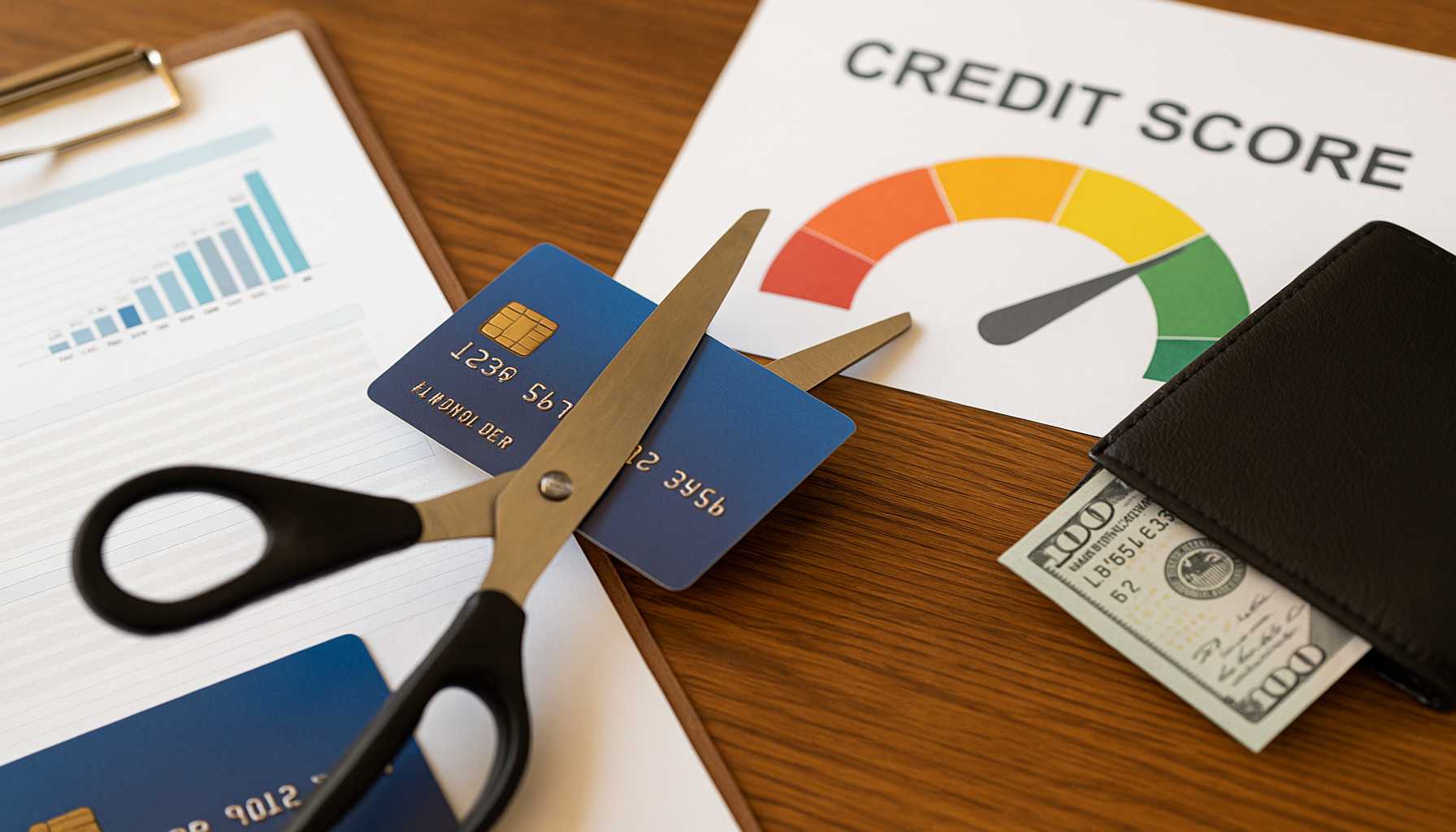Canceling a credit card can seem daunting, especially if you’re concerned about hurting your credit score. Understanding the right steps is crucial to ensure that this process is as seamless as possible. The good news is that with a little preparation and strategy, you can effectively cancel a credit card without negatively impacting your financial health.
Your credit score is an important financial tool, influencing everything from loan approvals to interest rates. Many fear that canceling a credit card could adversely affect this score. However, with proper knowledge and tactics, you can protect your credit standing.
Understand the impact of canceling a credit card

Before deciding to cancel a credit card, it is essential to comprehend the implications this action might have on your credit score. Credit utilization ratio and credit history are two significant factors affected by this decision. The credit utilization ratio is the amount of credit you’re using compared to the total credit available, and canceling a card can increase this ratio.
Maintaining a low credit utilization ratio is crucial for a healthy credit score. When you cancel a credit card, you reduce your total available credit, which can inadvertently raise this ratio if balances on other cards remain unchanged. Besides, your credit history length could also be impacted, as canceling an older card might shorten your average credit history.
Steps to minimize potential credit impacts
The first step in canceling a credit card is to pay down any existing balance on the card. This prevents accruing additional interest and eliminates any potential disputes with the card issuer. Once the balance is zero, consider the age of the card. It’s often beneficial to retain older cards, as they contribute positively to your credit history.
After considering these factors, contact your credit card issuer to initiate the cancellation process. Use this opportunity to confirm any outstanding points or rewards. Taking these steps helps mitigate the effects on your credit score and ensures you make the most out of your financial resources.
Evaluate alternatives to canceling a credit card
Before you cancel a credit card, exploring alternatives might be beneficial. One option could be downgrading to a no-fee version of the card, which lets you keep your credit line open without incurring annual fees. This can be a prudent approach to maintaining your credit history and utilization ratio unaffected.
Transferring any recurring payments to another card is another viable strategy. This ensures you maintain financial consistency while closing the card that no longer serves your needs. Carefully reviewing your financial strategies and exploring these alternatives can prevent unnecessary credit disruptions.
Practical tips for a smooth transition
Once you’ve decided on your action plan, update any automatic payments linked to the card. This prevents service disruptions and avoids missing payments. Also, monitor your credit report for any discrepancies after the card cancellation.
Keeping an eye on your credit report helps in identifying any errors that might arise due to the account closure. These practical steps ensure a seamless transition without unanticipated financial surprises, maintaining your credit integrity as intended.
Final thoughts on canceling a credit card
Canceling a credit card doesn’t have to be a daunting task, but it requires careful consideration and execution. The focus should be on maintaining your credit health by understanding the consequences and planning strategically.
Ultimately, your goal is to make financially sound decisions that support your long-term goals. Being informed and prepared aids in navigating this process judiciously, allowing you to cancel a credit card without adversely affecting your credit score.




